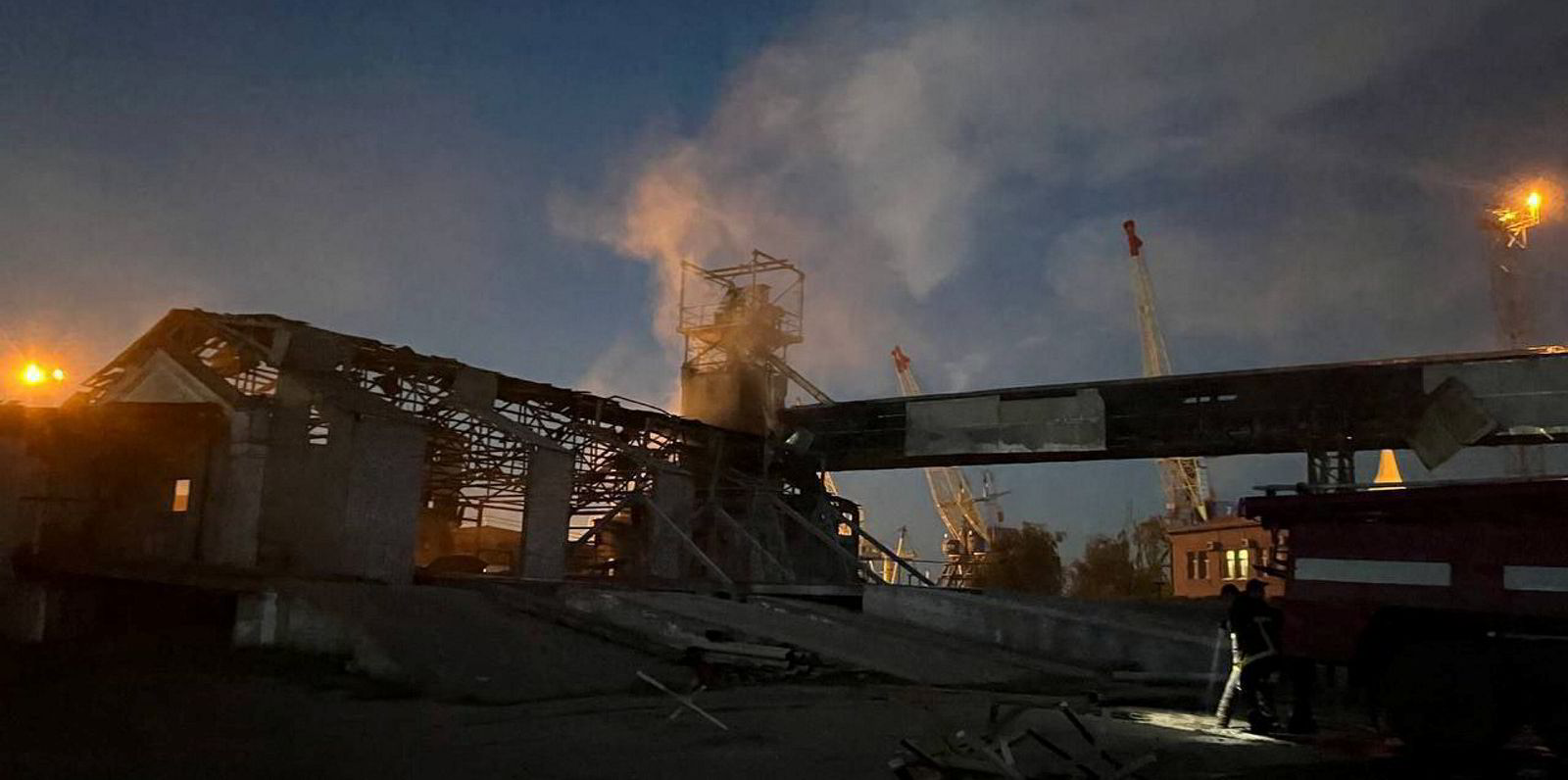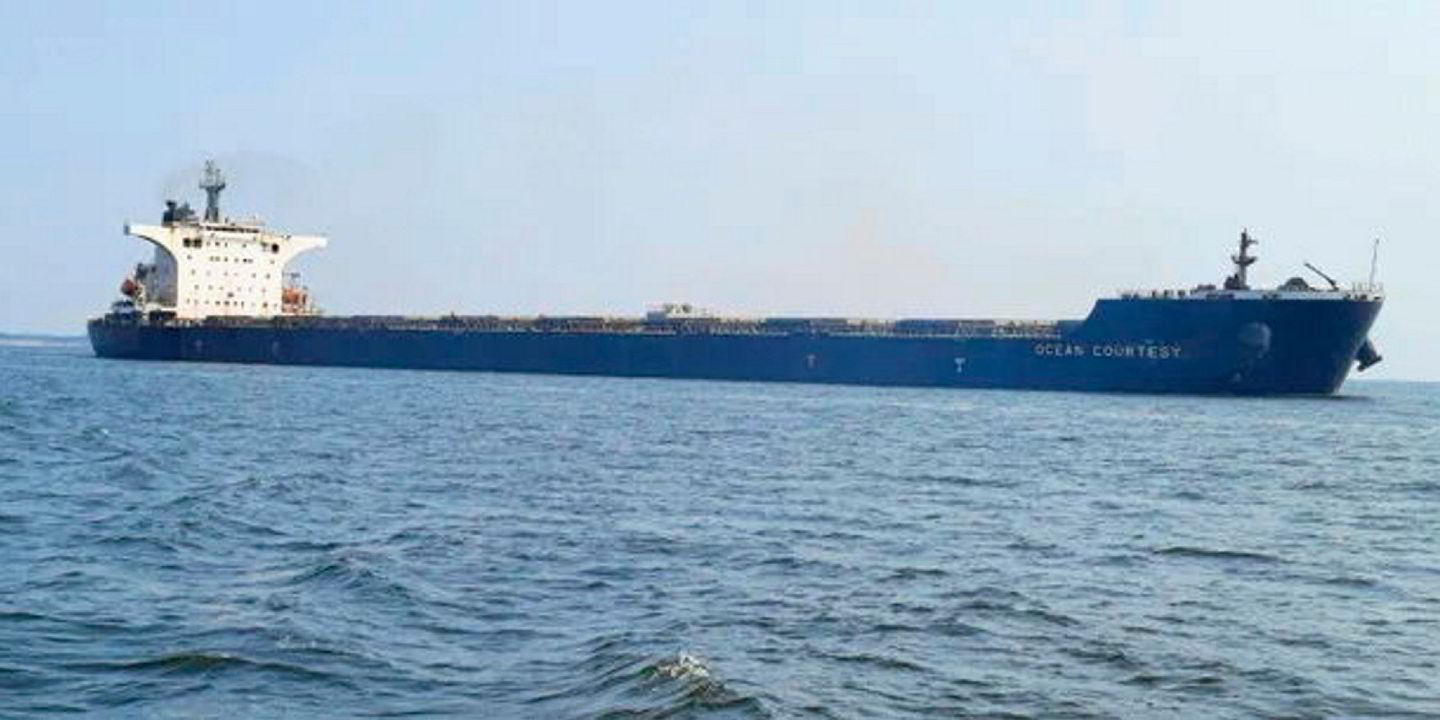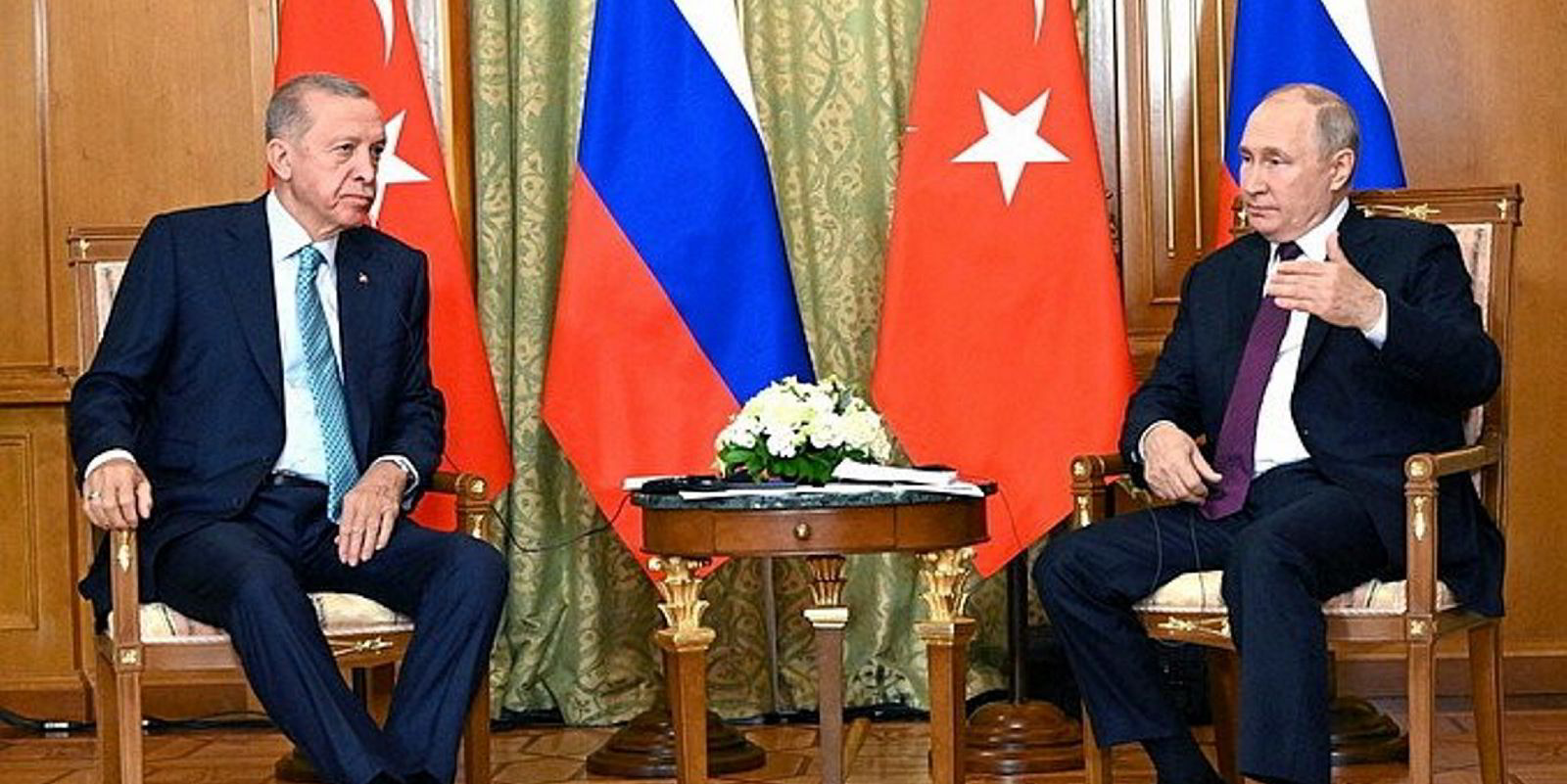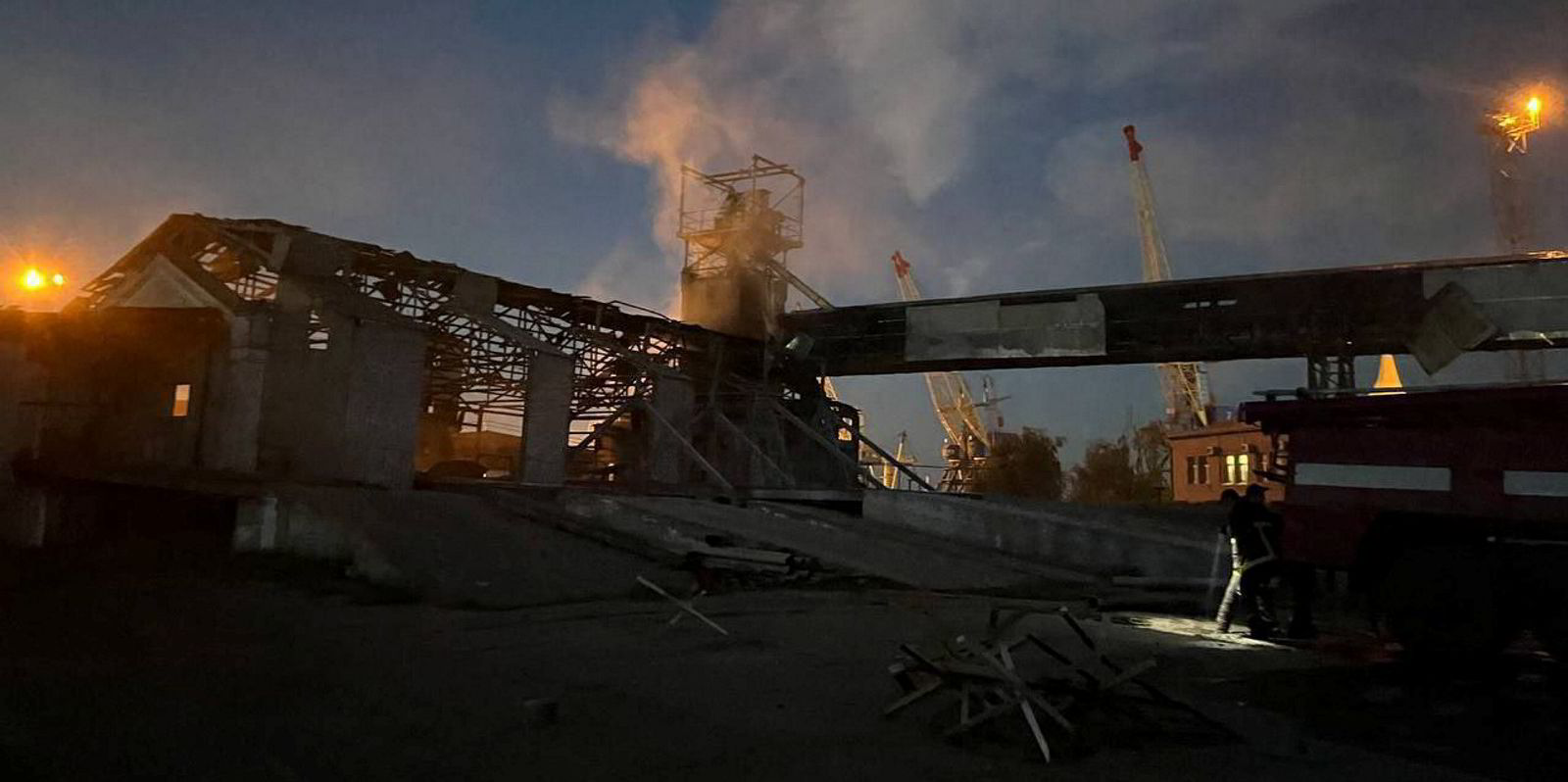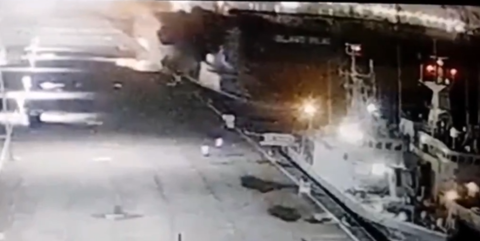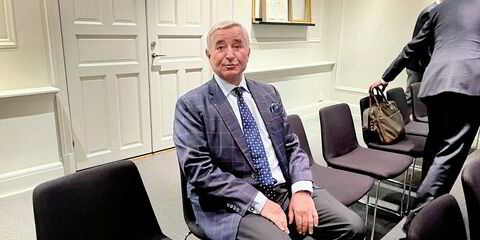As Russia carries out devastating attacks on port infrastructure across Ukraine, Kyiv has asked its Western allies for military help to resume large-scale, seaborn grain exports.
“We need partners to help us strengthen the air defence of the Odesa region,” Ukraine President Volodymyr Zelenskyy wrote on social media platform X after talks with UK Prime Minister Rishi Sunak.
Zelenskyy's statements come after Russian drones struck Ukrainian port facilities four nights out of the last five, causing large-scale damage to oil depots, elevators and grain store facilities.
The strikes on Odesa, as well as further south on the Danube ports of Izmail, Reni and Kilya, highlight that the poor state of Ukraine's air defences is the biggest problem for its seaborn grain exports.
Those largely came to a halt in July, when Russia withdrew from a UN-led safe corridor known as the Black Sea Grain Initiative (BSGI).
The scenario of a new Black Sea corridor bypassing the need for Russian consent seemed to be gaining traction last month after Ukraine registered with the IMO a new route, closer to Ukraine's shore.
The government in Kiyv even managed to send four ships previously trapped in Ukraine through the corridor.
“Ukraine has already successfully used an alternative route,” Zelenskyy said on Thursday.
It remains, however, doubtful if the experiment can be replicated on a larger scale.
Some brokers have said that “no owners in their right minds” would approach Ukraine after the end of the grain initiative.
Even the four ships that Ukraine managed to get out were not laden with grain and Russia did not try to prevent them from leaving — possibly because at least some of them were carrying cargoes to countries friendly to Moscow.
Security considerations are weighing heavily on ongoing discussions to set up an insurance scheme for vessels that would dare enter the alternative corridor at strike distance of hostile Russian arms.
Nevertheless, and as TradeWinds reported last month, insurance broker Marsh is involved in talks to arrange war risk cover along a missile-protected sea corridor.
Statements on Thursday by John Neal, the chief executive officer of Lloyd’s of London, seem to cast doubt that the London market would provide insurance outside a UN framework.
“We are in active discussions with the UN about how that might happen,” Neal told Reuters.
“Are we happy and able to continue to provide insurances in the event that a corridor can be re-operated and can be re-established? The answer to that is yes.”
The UN, however, has not given any indication that it might organise a new BSGI without Russian consent.
To the contrary and as TradeWinds reported earlier this week, the New York-based organisation has prepared a new set of proposals for submission to Moscow.
Russian President Vladimir Putin, however, poured cold water on the idea and said that Moscow will only re-enter a new grain deal if its longstanding demands are met.
Putin’s demands include removing practical, financial and insurance obstacles to the export of Russia’s own grain and fertilisers, as well as the unblocking of Russian ammonia exports through Ukrainian territory.
With Ukrainian grain exports at a halt out of large ports such as Odesa and just trickling out through the Danube, the country is increasingly relying on more complicated routes through Eastern Europe to get its commodities out.
A Ukrainian official said on Thursday that grain exports through Croatian terminals have begun.
As if Ukrainian foodstuffs were not facing enough problems, however, they are stirring controversy in Eastern Europe as well.
For fear of undercutting their own farmers, Western neighbours such as Poland want the EU to maintain a ban on the import — though not on the transit — of Ukrainian grain.(Copyright)
